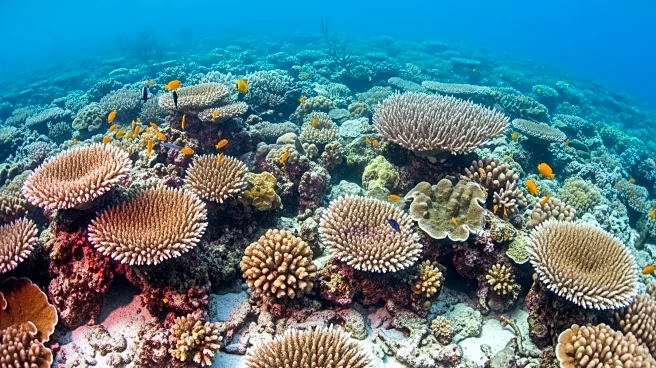What is the story about?
What's Happening?
A report from the Potsdam Institute for Climate Impact Research has revealed that the world's oceans have crossed a critical acidity threshold, primarily due to fossil fuel emissions. This increase in acidity poses a significant threat to marine ecosystems, particularly affecting species like oysters, molluscs, and corals. The report calls for urgent global action to reduce fossil fuel use and address other human-driven pressures on the environment. The findings come amid record-breaking ocean heat and mass coral bleaching events.
Why It's Important?
The crossing of this acidity threshold in the oceans is a major environmental concern, as it threatens marine biodiversity and the health of ecosystems that are vital for human food security and coastal economies. The report highlights the urgent need for international cooperation to mitigate the impacts of climate change and protect ocean health. The findings also emphasize the role of oceans in regulating the Earth's climate and absorbing carbon dioxide, making their preservation crucial for global environmental stability.
What's Next?
The report calls for renewed efforts to curb fossil fuel emissions and implement policies that protect marine life. International cooperation and policy changes, similar to those that have successfully addressed issues like the ozone layer, are needed to prevent further degradation of ocean health. Scientists stress the importance of reducing pollution and managing fisheries sustainably to mitigate the impacts of increased ocean acidity.
Beyond the Headlines
The report's findings highlight the interconnectedness of global environmental issues, with ocean health being a critical component of planetary stability. The degradation of marine ecosystems could have long-term implications for biodiversity, climate regulation, and human livelihoods. Addressing these challenges requires a holistic approach that considers the complex interactions between human activities and natural systems.















